12月8日,亚太空间合作组织(APSCO)大学生小卫星姿控分系统的调试演示活动在北京微纳星空科技有限公司卫星总装集成测试中心举行。APSCO教育培训部Ebrahimi部长、APSCO各成员国代表(线上)、北京航空航天大学宇航学院APSCO大学生小卫星课题组师生、区域中心在校的小卫星专业留学生,以及北京微纳星空科技有限公司姿控分系统相关负责人员等共计30余人参加了此次活动,整场活动进行了线上同步直播。
“APSCO大学生小卫星项目”(SSS)由APSCO发起,由APSCO各成员国(中国、巴基斯坦、伊朗、泰国、秘鲁、土耳其、孟加拉国、蒙古)大学联合研制3颗小卫星(包括1颗微小卫星+2颗纳星),其中一颗微小卫星(SSS-1)由北航牵头研制,本次活动主要对SSS-1卫星的姿态确定与控制系统(ADCS)做调试和演示。
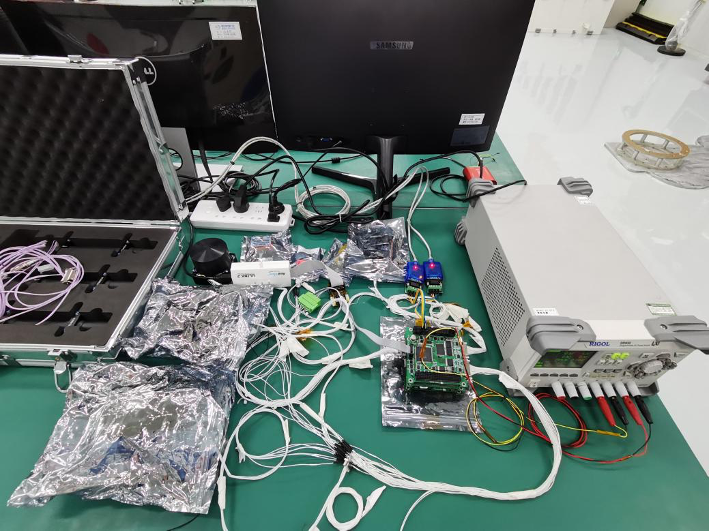
活动现场,由小卫星姿控系统负责人、北航宇航学院孙亮老师首先就ADCS的基本概念、SSS-1 ADCS的硬件配置和工作模式、ADCS的测试和验证技术做了讲解,并对本次活动的测试内容做了简单介绍。
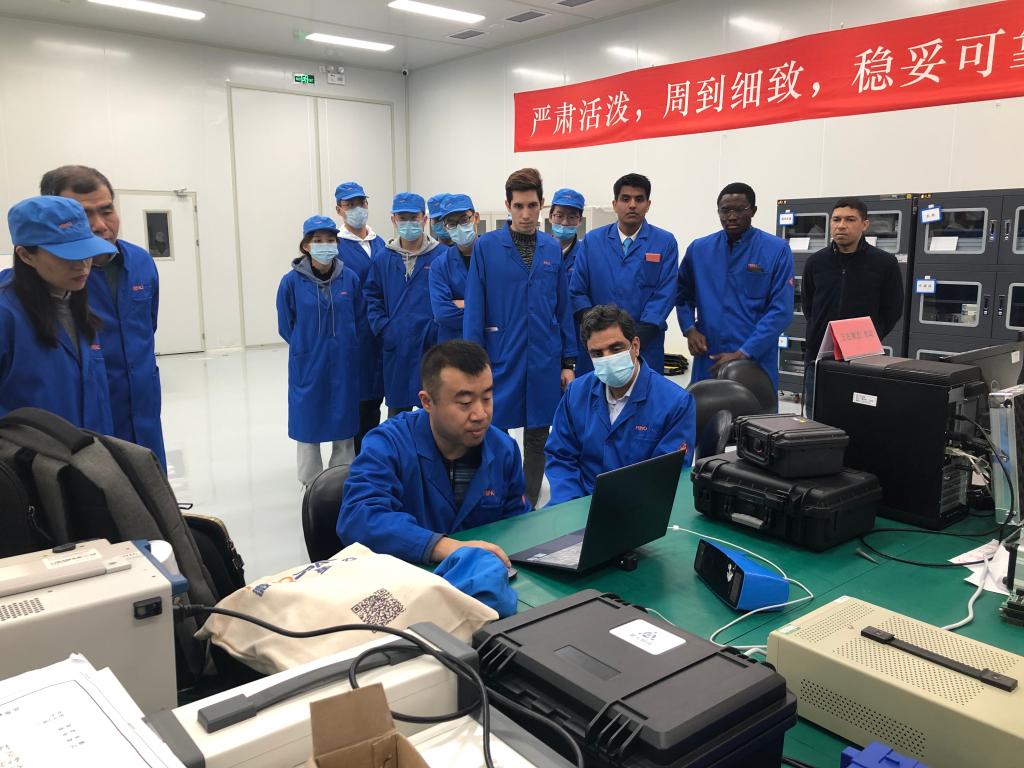
紧接着来自区域中心小卫星专业的博士研究生Amir同学和来自北航宇航学院的赵泽林同学共同为大家做了ADCS的测试演示,包括单机测试、闭环回路测试、故障测试,Amir同学就测试的过程和结果做了生动详细的介绍和阐述。
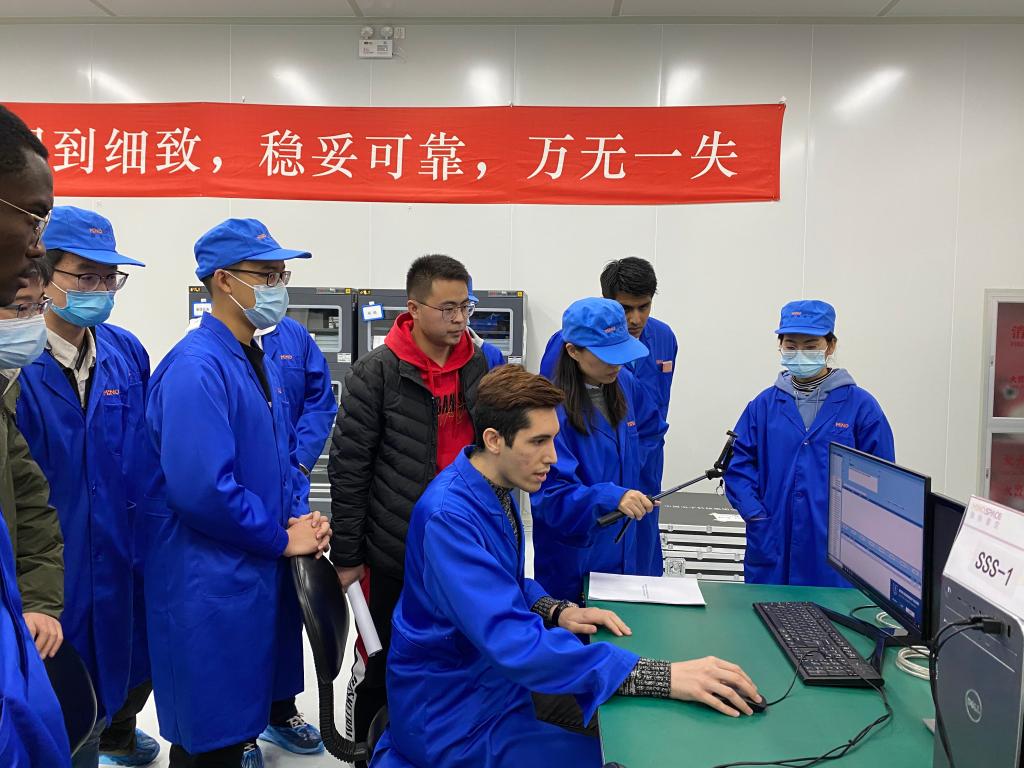
针对线上各成员国和线下留学生所提出的问题,小卫星项目负责人、北航宇航学院黄海教授作了回复和讲解,并与其他成员国做了进一步的沟通和交流。
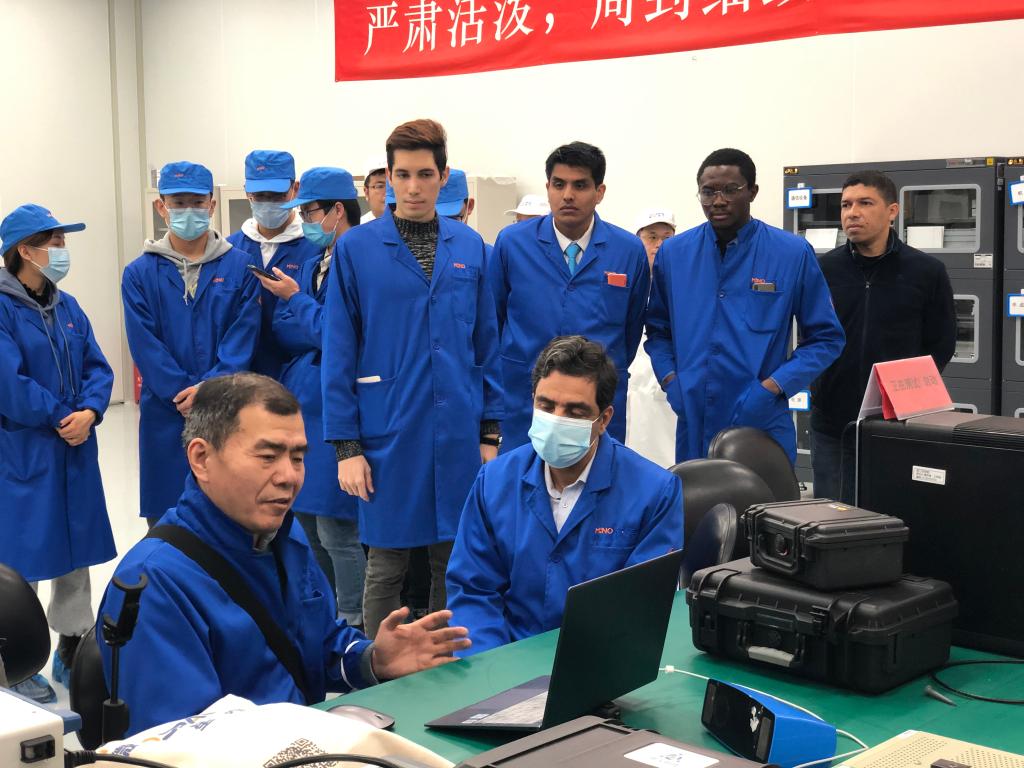
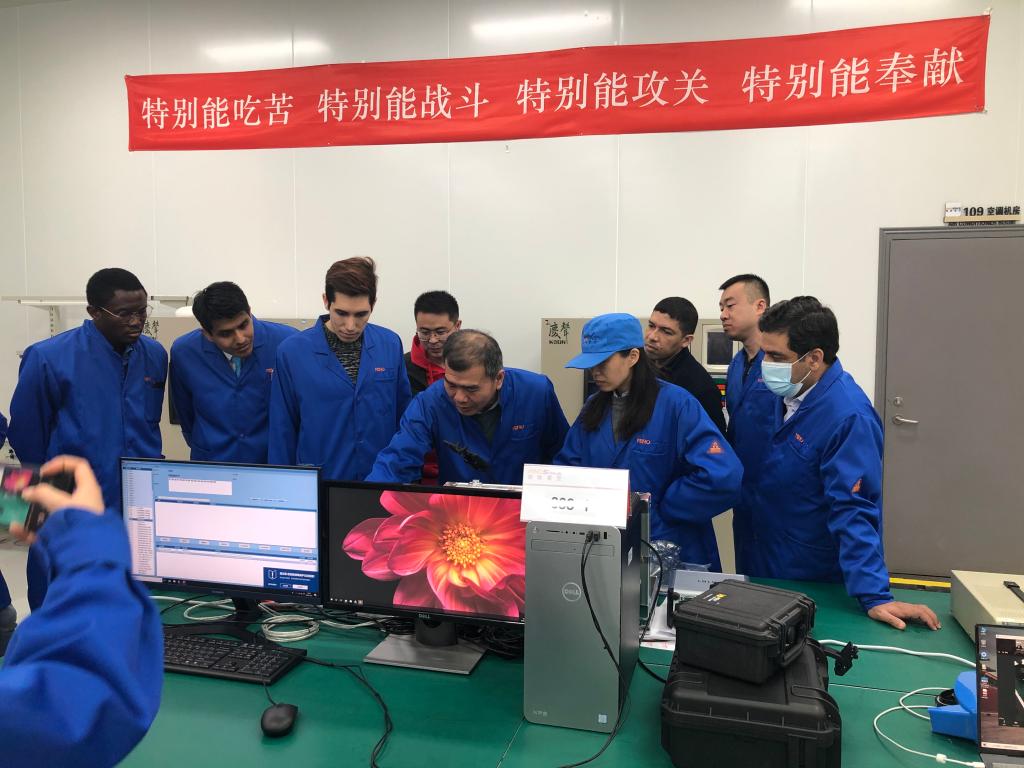
活动最后,APSCO的Ebrahimi部长做了总结,他表示此次ADCS演示活动对SSS-1的下一步研制具有很大的促进作用,同时也为APSCO各成员国的师生提供了一个空间技术学习和卫星工程实践的平台,推动了各成员国之间的合作和交流。
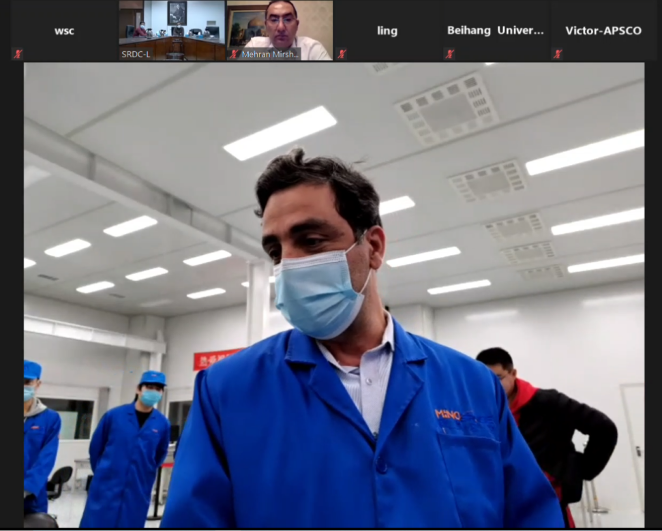
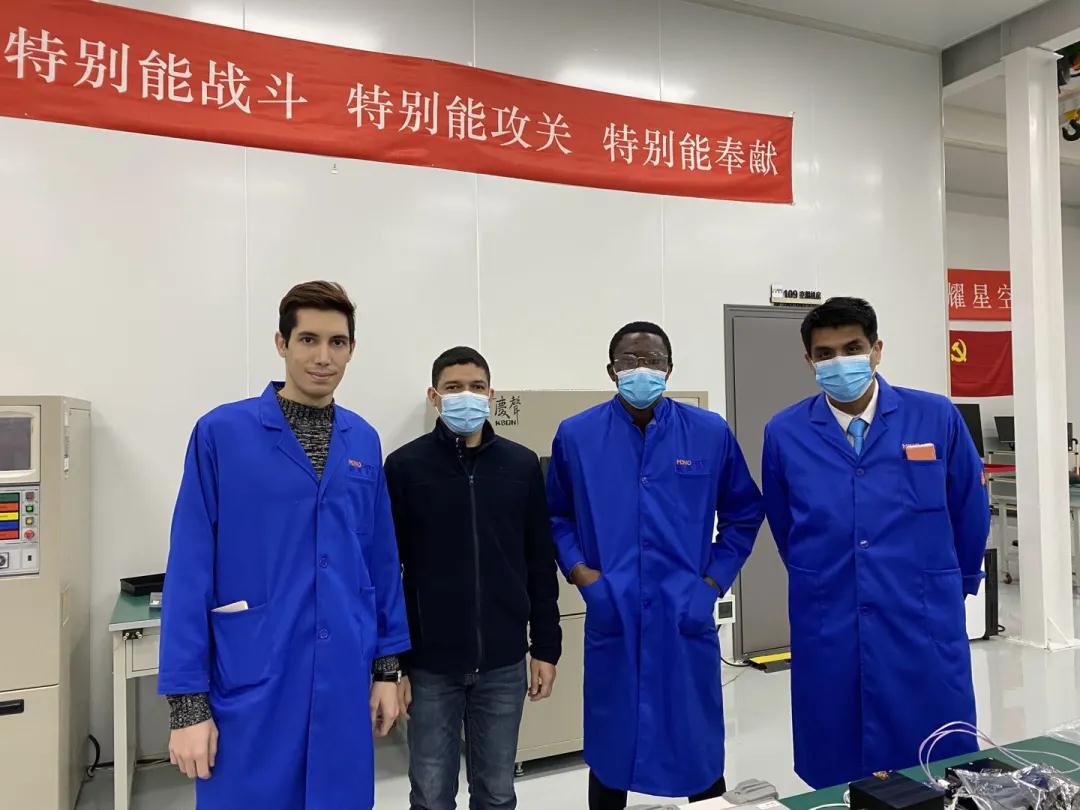
区域中心参加此次活动的4名学员(2名硕士,2名博士)表示,此次活动让他们对正在参与的项目和课程所学有了更深刻的理解和认识,是一次难得的实践活动。
My professional background is more related to the telecommunications field but I know that ADCS tests are quite cool and satisfactory to see. Since this experiment is based only in mathematical models, at first I only expected perfect squared data readings however I got impressed how realistic they are designed. We needed real time to wait the satellite structure to get balanced in their own axis when shifting between control modes, like it were in space already. In addition, it was interesting to see how satellite ADCS itself respond to unexpected failure events.
——克鲁兹,秘鲁,2019级小卫星学员
The reconciliation of practice with theory is very important for the student, since he is called upon to practice more in society. I was delighted to have participated in this APSCO SSS-1 Attitude Determination and Control System Debugging and Demo Activity. This allowed me to experience HIL test of ADCS, namely Component test of ADCS, Hardware-in-loop test of ADCS, Failure mode test of ADCS from theoretical courses that I acquired in class.
I would like to thank APSCO which gives the opportunity to foreign students to work on a concrete project which is APSCO Small Students Satellite, a MINO Space company which hosted the test on its premises and the Faculty of Astronautics and RCSSTEAP of Beihang University which continues to promote space technology in all its forms, the intellectual and physical well-being of its students despite the pandemic situation in the world now.
——阿克提,多哥,2019级小卫星学员
In this activity, Beihang Unversity and the Centre gave us the opportunity to observe the tests that were carried out on the ADC subsystem of the SSS-1 satellite. We learned about the technical characteristics of the different sensors, actuators and software that make up the Attitude and Determination Control system. The tests were carried out in its different modes of operation, and even a failure was intentionally caused to one of the reaction wheels, the system detected the failure and then managed to stabilize the satellite. The results obtained in these tests give a high level of safety and reliability to the engineering model of the SSS-1 satellite. The methodology used for these tests, as well as their results and the SSS-1 engineering models can be used by the students of Beihang University in their different academic research and can even be shared with students in the member countries of APSCO. Sharing knowledge is undoubtedly the most important part of this type of academic project, this is being achieved thanks to Beihang University and APSCO.
——强尼,委内瑞拉,2019级DOCSTA学员

